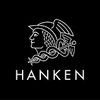Is cash assistance really king in humanitarian aid?
2.5.2023 13:01:46 EEST | Svenska handelshögskolan | Press release
In a world where humanitarian crises seem to be an ever-present reality, delivering aid to those in need has become more challenging than ever. As humanitarian organisations increasingly turn to cash and voucher assistance (CVA) as a way to provide aid , it is crucial to consider the logistical implications of this. Failure to do so can result in delays, increased costs, and potentially harmful outcomes for the very people organisations strive to help.
“This shift in the way aid is delivered is not without consequence. CVA is not managed in the same manner as in-kind assistance, and assumes that markets are functioning properly and there is a sufficient supply of goods available”, argues Russell Harpring in his doctoral thesis Cash and Voucher Assistance in Humanitarian Contexts: Supply Chain Determinants for Feasibility and Operability.
CVA enables beneficiaries to choose the goods and services they need most, promotes local markets and businesses, and provides a sense of dignity and choice to those receiving aid. However, delivering cash and vouchers can also pose significant logistical challenges, particularly in contexts where infrastructure is weak, security is a concern, or there are limited financial service providers.
“The problem with CVA grows as persons affected by disasters often have multiple concurrent needs to be met, with varying degrees of severity and urgency. Each should be evaluated separately to determine the best course of action to take for the response,” Harpring points out.
Therefore, humanitarian organisations must carefully assess if cash and voucher assistance is the best way to help in each case. In his thesis, Harpring explores how aid can be delivered more efficiently and effectively by addressing the humanitarian system holistically.
“As we continue to face complex crises, it is essential that we develop a better understanding of the mechanisms which underpin the systems we rely on to deliver aid. Programmes should be implemented so as not to cause disruptions to the existing supply chains and financial markets which may further exacerbate an already unstable situation,” Harpring underlines.
So, is cash assistance really king in humanitarian aid? Russell Harpring suggests that you should look to your supply chains for the answer.
The thesis is available here: Cash and Voucher Assistance in Humanitarian Contexts: Supply Chain Determinants for Feasibility and Operability.
The doctoral defence of Russell Harpring takes place on 4 May at 14:00 EEST at Hanken School of Economics.
You can participate via Teams.
Opponent: Professor Maria Besiou, Kuehne Logistics University – THE KLU
Chair: Professor Graham Heaslip, School of Engineering Atlantic Technological University, Galway
More information:
Russell Harpring
Hanken School of Economics
+358 044 977 5832
russell.harpring@hanken.fi
About
Hanken School of Economics is a leading, internationally accredited university with over a hundred years of experience in education and research in economics and business administration. The research is of a high standard and constitutes the foundation of all teaching. Hanken has close ties to the business community and an active alumni network with over 13 000 alumni in 65 countries worldwide.
Alternative languages
Subscribe to releases from Svenska handelshögskolan
Subscribe to all the latest releases from Svenska handelshögskolan by registering your e-mail address below. You can unsubscribe at any time.
Latest releases from Svenska handelshögskolan
Hankens rektor Ingmar Björkmans mandat förlängs2.2.2026 16:39:42 EET | Pressmeddelande
Svenska handelshögskolans (Hanken) styrelse utser rektor för högst fem år i sänder. Styrelsen har i sitt möte 2.2.2026 beslutat att nuvarande rektor Ingmar Björkmans mandat, vars femårsperiod tar slut 31.7.2027, förlängs med ett år till 31.7.2028. Enligt gällande pensionsregler måste Björkman gå i pension hösten 2028.
Hankenin rehtori Ingmar Björkmanin toimikautta jatketaan2.2.2026 16:39:42 EET | Tiedote
Kauppakorkeakoulu Hankenin hallitus nimittää rehtorin enintään viideksi vuodeksi kerrallaan. Hallitus päätti kokouksessaan 2.2.2026, että nykyisen rehtorin Ingmar Björkmanin toimikautta, joka päättyy 31.7.2027, jatketaan yhdellä vuodella 31.7.2028 saakka. Voimassa olevien sääntöjen mukaan Björkmanin tulee jäädä eläkkeelle syksyllä 2028.
Hanken’s Rector Ingmar Björkman’s term extended2.2.2026 16:39:42 EET | Press release
The Board of Hanken School of Economics appoints the rector for a maximum of five years at a time. At its meeting on 2 February 2026, the Board decided that the current Rector, Ingmar Björkman, whose five-year term ends on 31 July 2027, will have his mandate extended by one year until 31 July 2028. According to current retirement regulations, Björkman retires in the autumn of 2028.
Ny forskning visar att konflikterna kring samiskhet i Finland har drivits fram medvetet27.1.2026 12:41:52 EET | Pressmeddelande
Många kommuner, politiska partier, regionala utvecklingsorganisationer och ekonomiska intresseorganisationer i Lappland har gett stöd åt motmobilisering mot Sametinget i Finland och åt ett nytt identitetsprojekt kopplat till lokala och regionala ekonomiska intressen.
Uusi tutkimus viittaa siihen, että saamelaisuuteen liittyviä kiistoja Suomessa tuettiin tarkoituksella27.1.2026 12:41:52 EET | Tiedote
Monet kunnat, poliittiset puolueet, aluekehitysorganisaatiot ja elinkeinoelämän edunvalvonnan järjestöt ovat tukeneet liikehdintää saamelaiskäräjiä vastaan ja uutta identiteettiprojektia, jolla on paikallisalueellisia taloudellisia intressejä.
In our pressroom you can read all our latest releases, find our press contacts, images, documents and other relevant information about us.
Visit our pressroom